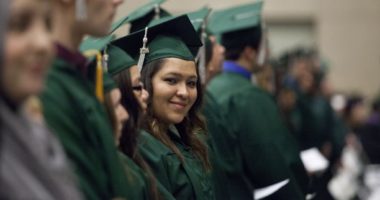OASIS at Work: Fostering Confianza to Learn From Each Other
I have spent a good portion of my personal life and career developing relationships. If you have ever read Malcom Gladwell’s book, The Tipping Point: How Little Things Can Make a Big Difference, any of my friends or colleagues would likely define me as what Gladwell refers to as a connector — one who habitually introduces folks to one another.
For me, the most important lesson of being a connector is the value and sustainability of relationships through confianza. If you take the word confianza at face value, it would simply translate to “trust.” However, the definition of the word is much more complex than that, in that it transcends challenges and compromises. Confianza allows us to be vulnerable and ask hard questions while honoring and maintaining respect. In the process, relationships are strengthened through wins and disagreements.
Confianza is at the heart of OASIS, a network of leaders at 10 institutions — mostly historically Black colleges and universities and Hispanic-serving institutions — dedicated to shared learning and action to improve outcomes for all students, especially low-income students and students of color. Members of OASIS and the Ed Trust staff work alongside each other to develop and foster confianza through a shared commitment to equity. And we nourish that confianza through communication, relationship-building, and mutually acknowledging our strengths and areas of development.
Communication. Whether electronically, over the phone, or in person, constant communication is key. We make it a priority to use a combination of all three methods. For example, we have monthly phone calls to check in with institution leaders to find what resources (e.g., community partnerships, promising practices, data, content experts, etc.) are needed to support their efforts. During our last network meeting, Gina García from the University of Pittsburgh presented on the impact of campus racial climate on student success. Afterward, a couple of leaders in our OASIS Network invited her to their campuses to dig deeper and tailor recommendations for their environments.
Relationship-building. This helps sustain confianza between all partners. At our network meetings, we are able to exchange ideas and challenge each other to amplify practices that are promising and support low-income students and students of color. At the last meeting, institutions shared new practices or modifications of practices that have moved the needle such as CSU Fullerton’s nationally recognized Student Success Teams and University of Houston’s “UH in 4” initiative — so that other OASIS institutions can tailor them to their campuses.
Acknowledging our strengths and areas of development. As a network, institution leaders rely on each other to share what works and oftentimes what is not working on their campuses. This creates a level of vulnerability, but it’s a level of vulnerability needed to understand challenges and to remedy them. At one network meeting, institutional teams were asked to assess how well particular student success practices (e.g., advising, meta-majors, early alert, etc.) were implemented on their campuses — essentially: not at all, somewhat, good, or great. With full confianza, their responses were cast on the wall, which allowed campus leaders to seek advice from each other and from those who were further along in implementation. After the activity, one campus leader told us, “It is great to have this interactive exercise. It gave us some self-insights.”
Confianza is always a work in progress. It is also fragile: Once it is broken, it is difficult to repair. These strategies are by no means a recipe for confianza; however, we are always working to sustain it for the success of the students we serve. In the ways friends and colleagues would describe me as a connector, I would say that through the development of confianza, our OASIS teams are connectors as they share promising practices with each other for their betterment of their institutions and student success.


